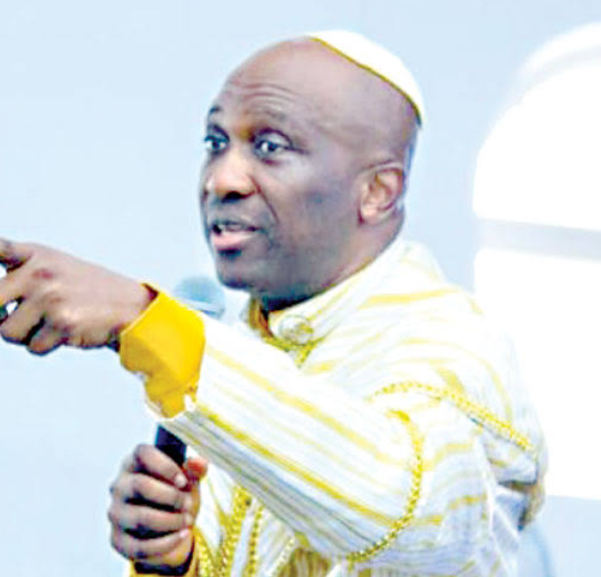
Dotun Fires Back at Nigerians in Diaspora: ‘If You Japaed, Stop Advising People Against Moving Abroad’
The conversation around migration, popularly called “japa,” has been one of the most heated discussions among Nigerians both at home and in the diaspora. It is no secret that thousands of Nigerians have sought greener pastures abroad in recent years, fleeing economic hardship, unemployment, insecurity, and a general sense of
The conversation around migration, popularly called “japa,” has been one of the most heated discussions among Nigerians both at home and in the diaspora. It is no secret that thousands of Nigerians have sought greener pastures abroad in recent years, fleeing economic hardship, unemployment, insecurity, and a general sense of hopelessness. But while some who left Nigeria continue to praise their decision, there is a growing trend of Nigerians abroad discouraging others from embarking on the same journey. This has now become a flashpoint in the social media space, and Nigerian media personality, Dotun, widely known as Do2dtun Energy gAD, has decided to step into the debate with a blunt and fiery take that has sparked conversations across the internet.
Dotun took to his X (formerly Twitter) page to call out Nigerians living abroad who constantly warn those still in Nigeria not to bother relocating. In his words, the act of discouraging others from leaving the country, despite living comfortably abroad, reeks of hypocrisy. He wrote, “If you japaed, stop advising people on why they should not come over. If you haven\'t moved back to Nigeria; you still live there, pls shut up. U are not qualified to discourage pple who want to follow the same path. Keep your advice to yourself.” For many Nigerians online, this was a bold but necessary clapback at a growing culture of unsolicited advice from people who once fled the country themselves but now position themselves as gatekeepers to migration dreams.
Dotun further elaborated that discouraging others from relocating is nothing short of selfishness and double standards. In another tweet, he fired, “Leave Nigeria alone. We all know it is bad. If you want to go, go. You believe it’s a better place for you but when you advise people who want to come not to come and discourage them then that’s witchcraft. You are there but advising people not to come makes no sense. If e too hard, come back. Let others try.” His words cut deep into the contradictions many Nigerians in the diaspora live with, enjoying the privileges of better infrastructure, stable power supply, quality healthcare, and more reliable governance abroad, yet warning those in Nigeria not to “fall for the hype” of migration.
The timing of Dotun’s outburst could not be more fitting. In recent times, Nigeria has witnessed a record wave of professionals, students, and families leaving the country in droves. Doctors and nurses have resigned from hospitals to take up better-paying jobs abroad. Tech talents have relocated to Europe, Canada, and the United States. Students are exiting in thousands to pursue foreign degrees that offer a pathway to citizenship. In the midst of this, the stories from Nigerians abroad have been mixed—some glowing, others full of struggle. Those who face cultural shock, racism, multiple jobs to survive, and the loneliness of being away from home have taken to social media to narrate their ordeals. While their stories are valid, Dotun argues that they are not enough to discourage others from taking their chances.
For many Nigerians reacting to his post, Dotun’s statement resonates strongly. Some believe that Nigerians abroad often forget the harsh realities of living in Nigeria and assume their struggles abroad outweigh the despair at home. Others feel that discouraging people from leaving is an indirect way of protecting their own privileges, fearing that more Nigerians migrating could saturate opportunities. On the other hand, some diasporans insist that their advice comes from a place of love and genuine concern, warning prospective migrants about the risks of debt, depression, and unmet expectations. They argue that not everyone has the resilience to survive the initial grind of living abroad. But Dotun’s message was clear: people should be allowed to make their own mistakes, pursue their own dreams, and test their own destinies without being sabotaged by those who already escaped.
The “japa” phenomenon has not only reshaped the demographics of Nigeria but has also altered family structures, professional sectors, and even politics. Entire households have been split, with parents abroad and children in Nigeria or vice versa. The healthcare system has been particularly hit, with a brain drain of doctors and nurses leaving the country in critical shortage. Universities have lost lecturers to foreign institutions, and the nation’s tech industry has been drained of some of its brightest minds. Yet, despite these challenges, many Nigerians see migration as the only viable escape from poverty and chaos. Against this backdrop, Dotun’s message strikes at the heart of the tension: if you left, you cannot in good conscience deny others the chance to try.
The backlash to Dotun’s comments has also been significant. Some Nigerians abroad accused him of oversimplifying the realities of migration. They claim that their warnings are not discouragement but reality checks, pointing out that many Nigerians arrive abroad only to face homelessness, joblessness, and the humiliation of starting over from scratch. Some argued that sharing these hard truths is essential to prepare people for what lies ahead. But Dotun countered that if living abroad is truly unbearable, the solution is simple: come back home. Remaining abroad while complaining, he suggests, is proof that despite the struggles, life outside Nigeria still offers better odds than the uncertainty within it.
The debate sparked by Dotun’s posts highlights a broader generational frustration. Young Nigerians, often described as the most determined group of migrants, are tired of lectures that invalidate their hopes. For them, Nigeria has failed on too many fronts: corruption, bad governance, lack of jobs, failing infrastructure, and insecurity. To be told by someone abroad not to bother attempting a way out feels not only condescending but also insulting. Dotun, in his usual fiery style, gave voice to this frustration, insisting that every Nigerian deserves the right to explore opportunities outside without interference from those who already fled.
As the “japa” wave continues, one thing remains clear: the Nigerian dream is increasingly becoming synonymous with the foreign dream. Dotun’s words may not silence the critics in the diaspora, but they certainly shine a light on the hypocrisy of enjoying the benefits of migration while denying others the chance to seek the same. Whether Nigerians abroad are warning out of love or arrogance, the fact remains that thousands are still leaving, and thousands more are making plans. Dotun’s final shot—“If e too hard, come back. Let others try”—has become the rallying cry for many Nigerians who believe their future lies beyond the country’s borders.
Share this post
Related Posts

Juventus sack Igor Tudor after winless start, appoint Massimo Brambilla as interim manager
Italian giants Juventus have sacked head coach Igor Tudor after a disastrous start to the...

“America Is Not Your Mission Field” — Primate Ayodele Sparks Debate, Urges Pastors to Seek Revival in Spiritually ‘Hard’ Terrains
Controversial Nigerian cleric Primate Elijah Ayodele has ignited fresh debate across the country’s religious landscape...

“Una Dey Craze for This Yankee, Aswear!” — Peter Okoye Blows Hot After U.S. Waitress Slides Into His DM to Insult Him for Leaving a Small Tip
Nigerian singer and one-half of the legendary PSquare duo, Peter Okoye, popularly known as Mr....